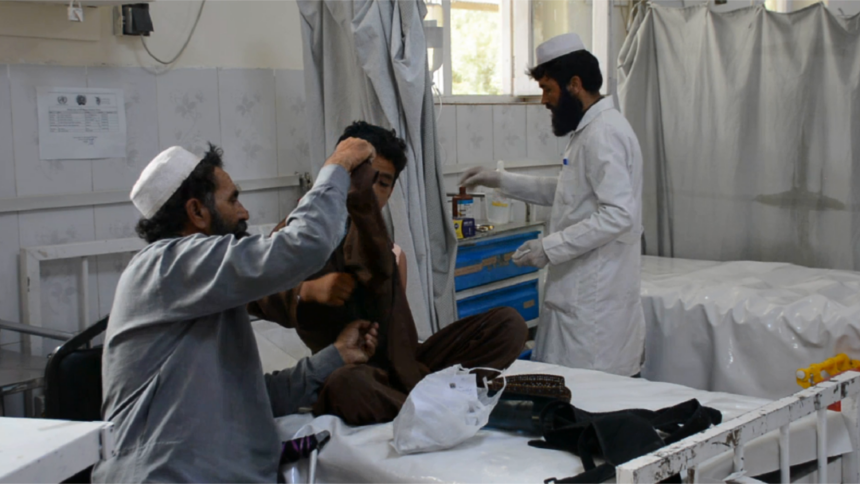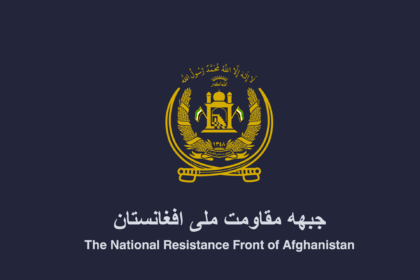RASC News Agency: While Afghanistani citizens across numerous provinces are grappling with severe shortages of healthcare services, medical staff, and medicines alongside the closure of many medical centers the acting Minister of Public Health under the Taliban, Noor Jalal Jalali, recently claimed that the country’s healthcare system has been “reformed” over the past year. In an annual report session held in Kabul, Jalali boasted of six legislative drafts, two operational procedures, 200 charters, 15 bylaws, and 70 guidelines that the Taliban purportedly developed to “transform” the healthcare system. However, these claims starkly contrast with the actual situation on the ground, as corroborated by international organizations such as the World Health Organization (WHO). Reports from these bodies warn that Afghanistan’s healthcare infrastructure is on the verge of collapse, leaving millions of citizens without access to even basic medical care.
A significant aspect of the Taliban’s impact on the health sector has been their ongoing restriction of women’s education and employment in the field. Noor Jalali, acting on the Taliban’s leadership, announced the ban on women and girls’ training in medical institutes. This decree mandates that violators face the revocation of their operating licenses. This draconian policy has led to the closure of multiple medical institutions and triggered the mass flight of female doctors, nurses, and other qualified healthcare professionals. In many provincial clinics, the absence of female doctors has left women who are already marginalized under the Taliban’s rule vulnerable, often forced to wait for days for care or abandon their treatment altogether. In some rural areas, this dire situation has resulted in maternal deaths, with women unable to access proper healthcare during childbirth.
Despite the claims made by Jalali, reports from local witnesses and sources reveal a vastly different picture. Jalali announced that public hospitals would be constructed in 318 districts, with 20 more hospitals supposedly under construction with financial support from the UN High Commissioner for Refugees. He also mentioned the completion of 12 out of 174 stalled projects, but provided no information on their specific locations or the quality of these facilities. However, local sources paint a grim picture: dozens of clinics and hospitals have been shuttered or are barely functioning due to severe funding shortages, lack of equipment, and dwindling international assistance. In provinces such as Ghor, Urozgan, Faryab, and Zabul, government-run medical centers are so understaffed and under-resourced that they cannot even handle routine medical needs. This has forced citizens to turn to expensive private healthcare if they can afford it further exacerbating the disparities in access to medical care.
The World Health Organization (WHO) and other international human rights bodies have repeatedly warned that the healthcare system in Afghanistan is in a state of collapse. They point to several key factors behind this failure, including the Taliban’s systematic exclusion of women, the dismantling of qualified medical personnel, a complete lack of transparency in the allocation of funds, and the absence of any coherent or evidence-based healthcare strategy. Thousands of Afghanistani children remain deprived of essential vaccinations, and mothers are being denied access to safe childbirth services despite the Taliban’s hollow claims of “fundamental reforms.” These so-called reforms seem more like a propaganda tool, aimed at manipulating both the Afghanistani population and the international community, while the healthcare system deteriorates further. Reports from local sources confirm that most of the declared budgets are mismanaged or consumed in opaque, centralized processes, which fail to reach the citizens who need it most.
While the Taliban continues to trumpet its supposed achievements in healthcare reform, the reality is that these reforms are merely a facade. International and local experts warn that as long as the Taliban persists in undermining essential healthcare services and excluding women from meaningful participation in the sector, the healthcare system will continue its downward spiral. The consequences of these policies are felt most acutely by the most vulnerable populations especially women and children who are denied basic healthcare services, leading to preventable deaths and ongoing public health crises. Despite the Taliban’s attempts to present a veneer of legitimacy through these healthcare “reforms,” the international community cannot afford to be misled. The evidence of systemic failure is overwhelming, and the world must hold the Taliban accountable for the devastating impact their policies continue to have on the Afghanistani people.






